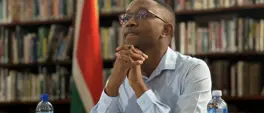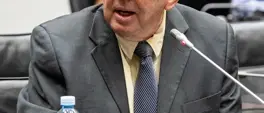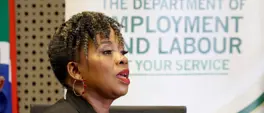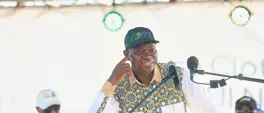Jury set to deliberate Sean 'Diddy' Combs's fate
AFP
30 June 2025 | 3:34The dozen New Yorkers tasked with deciding the music mogul's future will begin poring over thousands of phone, financial and other records along with the stories of 34 people who testified against him over seven painstaking, and at times excruciating, weeks.
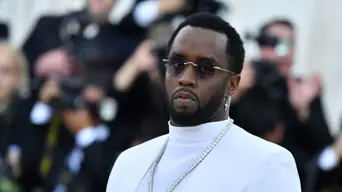
FILE: Sean 'Diddy' Combs arrives for the 2018 Met Gala on 7 May 2018, at the Metropolitan Museum of Art in New York. Picture: Angela WEISS/AFP
NEW YORK - Jurors on Monday will begin deliberating whether Sean "Diddy" Combs parlayed his celebrity, wealth and business empire into a decades-long criminal ring that saw him force women into drug-fuelled sexual performances with escorts.
The dozen New Yorkers tasked with deciding the music mogul's future will begin poring over thousands of phone, financial and other records along with the stories of 34 people who testified against him over seven painstaking, and at times excruciating, weeks.
Combs, 55, faces upwards of life in prison if convicted on five federal charges that include racketeering, sex trafficking and transportation for purposes of prostitution.
The producer and entrepreneur, once one of the most powerful people in the music industry, denies the charges.
On Friday, his lawyer vied to skewer the credibility of his accusers - namely, two women he dated for years - saying they were out for money, while rejecting any notion he led a criminal ring.
But in their final argument, prosecutors tore into the defence, saying Combs's team had "contorted the facts endlessly."
Prosecutor Maurene Comey told jurors that by the time Combs had committed his clearest-cut offences, "he was so far past the line he couldn't even see it."
"In his mind, he was untouchable," she told the court. "The defendant never thought that the women he abused would have the courage to speak out loud what he had done to them."
"That ends in this courtroom," she said. "The defendant is not a god."
Defence attorney Marc Agnifilo scoffed at the picture painted by prosecutors of a violent, domineering man who fostered "a climate of fear."
Combs is a "self-made, successful Black entrepreneur" who had romantic relationships that were "complicated" but consensual, Agnifilo said.
MANIPULATION
The defence has conceded that Combs at times beat his partners, but insist the domestic violence does not amount to the sex trafficking or racketeering he's charged with.
Key to the prosecution's case were witnesses Casandra Ventura and a woman who testified under the pseudonym Jane, both of whom described abuse, threats and coercive sex in wrenching detail.
In their closing arguments, the defence dissected their accounts and at times even mocked them, insisting the women were adults making choices that were best for them.
Speaking for the government on Friday, prosecutor Comey snapped back at that notion, saying the women were "manipulated" into "brazen" acts of sex trafficking.
Ventura and Jane both said they experienced emotional manipulation and threat,s which made them feel obliged to meet Combs's sexual demands.
Throughout the trial, jurors were shown voluminous phone records, including messages from both women that Agnifilo argued implied consent.
But prosecutors said those messages do not paint the whole picture and referenced testimony from a forensic psychologist who explained to jurors how victims become ensnared by abusers.
Central to their case is the claim that Combs led a criminal enterprise of senior employees who "existed to serve his needs" and enforced his power with offences including forced labour, kidnapping, bribery, witness tampering and arson.
But Agnifilo underscored that none of those individuals testified against Combs, nor were they named as co-conspirators.
Many witnesses were given immunity orders so they could speak without fear of incriminating themselves.
To convict Combs on racketeering, jurors must find that prosecutors showed beyond reasonable doubt that he agreed with people within his organisation to commit at least two of the eight crimes forming the racketeering charge.
On Monday, Judge Arun Subramanian will explain to them how to apply the law to the evidence.
Then, the eight men and four women will begin deliberating.
They must reach a unanimous decision, reaching either a guilty or not guilty verdict on each count.
Get the whole picture 💡
Take a look at the topic timeline for all related articles.



